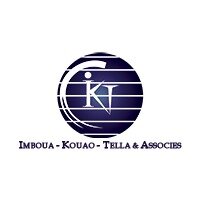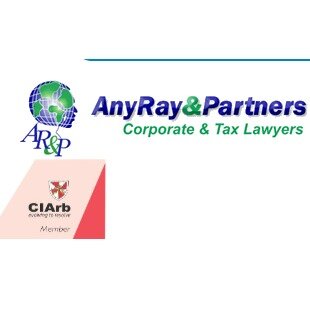Best Restructuring & Insolvency Lawyers in Cocody
Share your needs with us, get contacted by law firms.
Free. Takes 2 min.
List of the best lawyers in Cocody, Ivory Coast
About Restructuring & Insolvency Law in Cocody, Ivory Coast
Restructuring and insolvency refer to the legal processes and solutions available to individuals or businesses facing financial difficulties. In Cocody, Ivory Coast, which is part of the Abidjan district, these matters are governed by national legislation and regional frameworks such as OHADA (Organisation for the Harmonization of Business Law in Africa). The primary goal is to offer legal routes for businesses to reorganize, continue operations through restructuring, or efficiently liquidate assets if financial recovery is not feasible. This field is relevant for both companies and individuals who are unable to meet their financial obligations.
Why You May Need a Lawyer
There are several common situations where seeking legal assistance in restructuring and insolvency is beneficial:
- If you own or manage a business facing cash flow problems, mounting debts, or insolvency threats
- If you are an individual with unmanageable debts or at risk of legal action by creditors
- If you are a creditor seeking to recover debts from an insolvent company or individual
- If you are considering restructuring agreements or negotiations with creditors
- If you anticipate or have already received a notice of bankruptcy or liquidation
- If you are concerned about the legal risks or liabilities in the event of business failure
A lawyer with expertise in restructuring and insolvency lawcan help you understand your options, represent your interests, ensure compliance with local laws, and guide you through complex processes.
Local Laws Overview
Restructuring and insolvency in Cocody are primarily governed by both national Ivorian law and the OHADA Uniform Act on Collective Proceedings for Wiping Off Debts. Key aspects include:
- Preventive Procedures: Businesses in financial difficulty can seek conciliation or preventive arrangements with creditors, aiming to restructure debts and avoid insolvency.
- Judicial Reorganization: This process allows businesses to temporarily suspend payment obligations while attempting to restructure and return to profitability, under court supervision.
- Judicial Liquidation: When restructuring is not possible, the business's assets are liquidated to pay creditors, and the legal entity is dissolved.
- Creditor Rights: The law outlines the rights and priorities of different creditor classes during insolvency proceedings, including secured and unsecured creditors.
- Director and Officer Liability: Company managers can be held personally liable for decisions leading to insolvency if found to have acted negligently or fraudulently.
- Cross Border Considerations: Given the OHADA framework and Côte d'Ivoire's status as a West African business hub, cross border insolvency issues may arise.
These procedures are managed by specialized courts, and involve judicial administrators or liquidators appointed to oversee the process and protect stakeholder interests.
Frequently Asked Questions
What is the difference between restructuring and insolvency?
Restructuring involves reorganizing a business's debts or operations to avoid insolvency, while insolvency is the legal state of being unable to pay debts on time, often resulting in liquidation.
Who can initiate insolvency proceedings in Cocody?
Insolvency proceedings can be initiated by the company itself, its creditors, or relevant authorities if insolvency is suspected or declared.
What is the role of a judicial administrator?
A judicial administrator is appointed by the court to oversee the restructuring or liquidation process, ensuring transparency and fair treatment of all parties.
Are individuals eligible for restructuring or only companies?
Both companies and individuals can benefit from certain debt relief and insolvency procedures, though the rules may vary depending on the circumstances.
How are creditors paid during insolvency?
Creditors are paid according to a strict hierarchy defined by law, with secured creditors typically having priority over unsecured creditors.
Do directors have personal liability in case of insolvency?
Directors may be held personally liable if they are found to have committed fraud, mismanagement, or misconduct leading to the company's insolvency.
Can a business continue to operate during restructuring?
Yes, businesses under judicial reorganization may continue operations under court supervision in order to attempt recovery and safeguard jobs.
What are the alternatives to formal insolvency proceedings?
Alternatives include out of court settlements, negotiation with creditors, or preventive conciliation agreements approved by the court.
How long do insolvency proceedings usually take?
The length of proceedings varies based on complexity, but liquidation generally concludes faster than restructuring, which involves ongoing negotiations and oversight.
Can insolvency proceedings affect cross border assets?
Yes, especially under the OHADA framework. Legal cooperation may be required for assets or creditors located outside Côte d'Ivoire.
Additional Resources
If you need information or assistance regarding restructuring and insolvency in Cocody, Ivory Coast, you may consider the following resources:
- Commercial Court of Abidjan: Jurisdiction over most business insolvency matters, including actions in Cocody.
- OHADA: The OHADA Uniform Act provides the legal framework governing collective proceedings.
- Bar Association of Côte d'Ivoire (Ordre des Avocats): Can help you find specialized lawyers in restructuring and insolvency.
- Ministry of Justice and Human Rights: Offers general information about legal procedures and rights.
- Côte d’Ivoire Chamber of Commerce and Industry: Offers business support and referrals for legal or financial advice.
Next Steps
If you believe you need legal assistance in matters of restructuring and insolvency in Cocody, consider the following actions:
- Assess your financial situation carefully and collect all relevant documents and information about debts, assets, and ongoing contracts.
- Contact a lawyer specializing in restructuring and insolvency law. The Bar Association of Côte d'Ivoire can assist you with referrals.
- Schedule a consultation to discuss your situation confidentially and develop a strategic plan, whether it is preventive restructuring or formal insolvency proceedings.
- Follow your lawyer's advice regarding negotiations with creditors, court filings, and compliance with local laws.
- Stay informed about your rights and obligations by utilizing resources provided by authorities and recognized organizations.
Taking early legal advice can help protect your interests, minimize losses, and offer the best chance of recovery or effective resolution.
Lawzana helps you find the best lawyers and law firms in Cocody through a curated and pre-screened list of qualified legal professionals. Our platform offers rankings and detailed profiles of attorneys and law firms, allowing you to compare based on practice areas, including Restructuring & Insolvency, experience, and client feedback.
Each profile includes a description of the firm's areas of practice, client reviews, team members and partners, year of establishment, spoken languages, office locations, contact information, social media presence, and any published articles or resources. Most firms on our platform speak English and are experienced in both local and international legal matters.
Get a quote from top-rated law firms in Cocody, Ivory Coast — quickly, securely, and without unnecessary hassle.
Disclaimer:
The information provided on this page is for general informational purposes only and does not constitute legal advice. While we strive to ensure the accuracy and relevance of the content, legal information may change over time, and interpretations of the law can vary. You should always consult with a qualified legal professional for advice specific to your situation.
We disclaim all liability for actions taken or not taken based on the content of this page. If you believe any information is incorrect or outdated, please contact us, and we will review and update it where appropriate.












